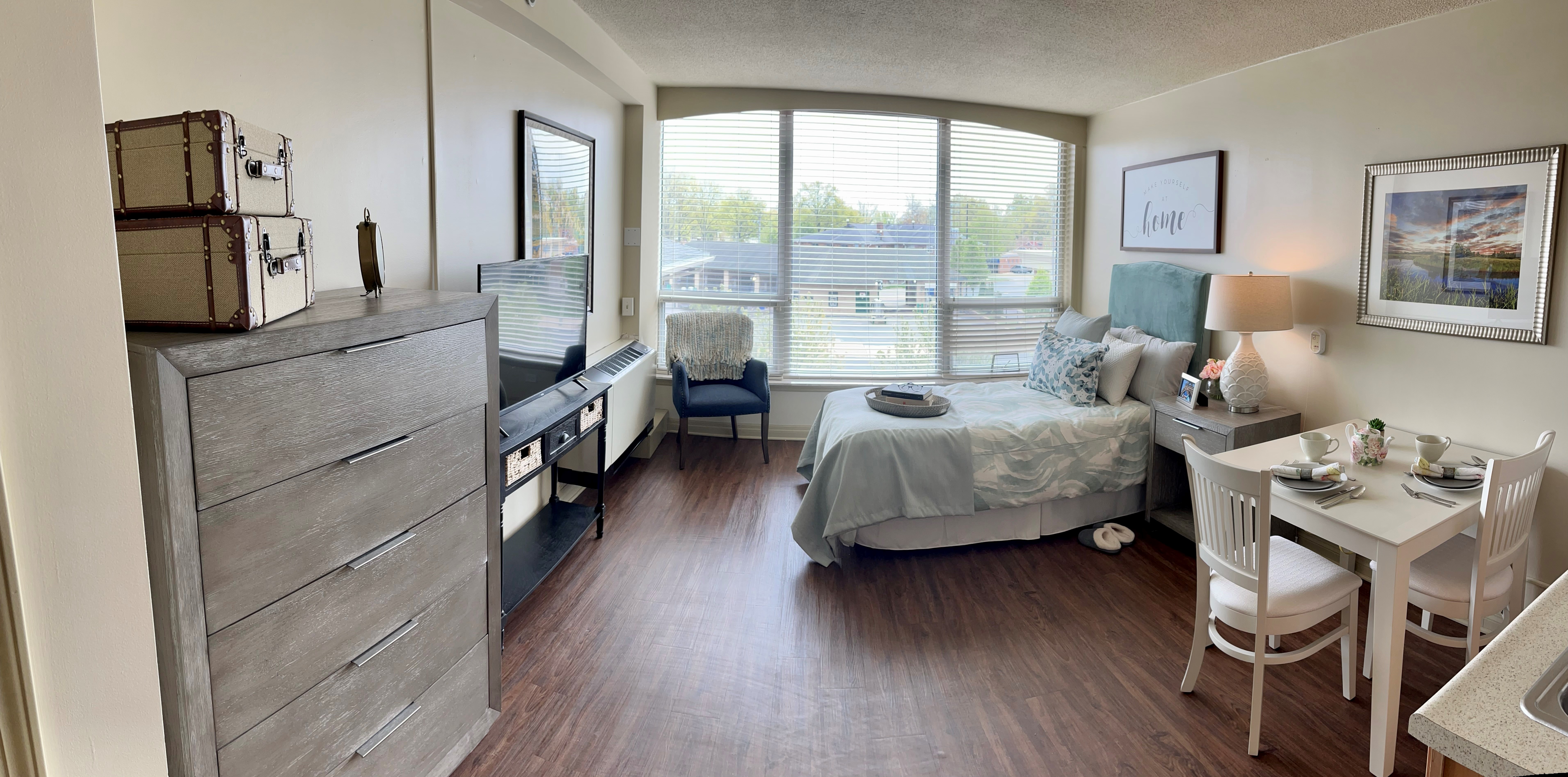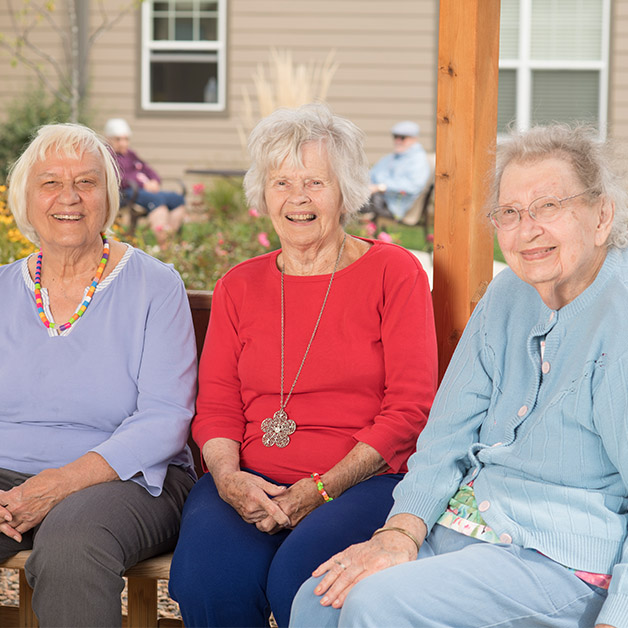Trusted Charlotte Memory Care: Professional Support for Your Loved Ones
Trusted Charlotte Memory Care: Professional Support for Your Loved Ones
Blog Article
Producing a Safe and Supportive Atmosphere: In-Home Memory Treatment Fundamentals
Developing a safe and nurturing environment for people requiring at home memory care is paramount to their wellness and lifestyle. From ensuring security within the home to using efficient communication methods and implementing memory-friendly style elements, there are necessary components that add to a holistic treatment approach. By concentrating on developing a supportive ecological community that deals with the special needs of those with memory disabilities, caretakers can considerably boost the daily experiences of their liked ones.

Safe Living Setting
Producing a safe and hazard-free living atmosphere is extremely important when providing at home memory treatment for people with cognitive problems. Ensuring the safety of the individual with memory loss is essential to avoid accidents and promote a sense of well-being.
Moreover, it is important to mount safety and security attributes such as grab bars in washrooms and hand rails along staircases to offer support and prevent accidents. In addition, making use of modern technology such as movement sensors and alarms can alert caretakers if the private wanders or is in distress. Creating a secure living setting likewise involves implementing approaches to avoid roaming, such as using door alarm systems or locks to restrict access to dangerous locations. By prioritizing safety actions and eliminating potential threats, caretakers can offer a supportive and safe and secure atmosphere for individuals with cognitive problems getting at home memory care.
Reliable Communication Approaches
Executing customized interaction techniques is essential in promoting significant communications with people with cognitive impairments in the context of at home memory treatment. Effective communication plays a crucial function in developing a supportive atmosphere that improves the health and lifestyle for individuals with memory problems. When connecting with someone experiencing cognitive decline, it is essential to make use of clear and easy language, preserve a tranquility and favorable tone, and provide visual cues to help comprehension.
One secret approach is to exercise energetic listening, revealing empathy, patience, and respect during conversations. Non-verbal cues such as facial expressions and body language can likewise assist communicate understanding and assistance. Furthermore, utilizing memory treatment by making use of or going over previous experiences songs and art can use long-lasting memories, stimulating connections and promoting engagement.
Moreover, incorporating normal regimens and constant interaction patterns can supply a sense of familiarity and safety for people with memory problems. By implementing these interaction methods, caretakers can establish meaningful links and advertise a sense of comfort and count on the at home memory care setting.
Memory-Friendly Layout
Offered the relevance of producing an encouraging setting for people with memory problems via reliable communication strategies, the unification of memory-friendly layout aspects in the living room ends up being critical in maximizing their everyday experiences and total wellness. Memory-friendly design concentrates on improving safety and security, convenience, and self-reliance for people with cognitive impairments. Straightforward adjustments can make a significant distinction, such as using contrasting shades to improve presence and decrease complication, incorporating clear signs to aid navigating, and reducing mess to stop sensory overload.
Including familiar aspects from the person's past, such as personal pictures or favorite things, can stimulate favorable memories and create a feeling of knowledge. Additionally, making certain adequate illumination degrees, installing grab bars in shower rooms, and applying non-slip flooring can assist protect against falls and injuries. Producing a relaxing and soothing setting via the use of familiar fragrances, soft appearances, and tranquil noises can likewise advertise leisure and reduce agitation. By integrating these memory-friendly style components, caretakers can provide a risk-free and encouraging home that makes it possible for people with memory concerns to maintain their independence and lifestyle.
Daily Routine Preparation
When establishing an everyday routine for individuals with memory concerns, mindful preparation is important to sustain their cognitive feature and overall well-being. Developing an organized routine can help in reducing complication, disorientation, and anxiety usually experienced by those with memory disabilities. Begin by integrating acquainted tasks that align with the individual's passions and preferences. Consistency in everyday routines can give a complacency and stability, assisting in the preservation of cognitive capacities.
It is vital to allow enough time for each task, original site lessening the demand to rush and staying clear of potential stress. Easy jobs like dish times, personal care, medication administration, and physical workout should be integrated right into the regimen. Additionally, incorporating routine durations of remainder and relaxation can avoid fatigue and frustration. Adaptability is key, as some days may need changes based upon the person's mood and energy levels. On a regular basis evaluating and adapting the daily schedule will assist guarantee its efficiency in advertising a favorable and calming environment for individuals with memory challenges.
Support Group Execution
Developing a robust network of supportive people plays a crucial duty in improving the high quality of care and well-being for people see this needing memory support. Member of the family, close friends, medical care experts, and community sources can all add to producing a strong support group. Interaction among these people is necessary to make sure that the requirements of the individual with memory obstacles are met properly.
Family members are usually the main caretakers and develop the foundation of the support system. They give everyday treatment, psychological support, and friendship. When required to prevent exhaustion and make certain the best possible treatment for their loved one., it is important for household members to seek aid and respite.
In addition to family members assistance, involving health care specialists such as registered nurses, medical professionals, and specialists can offer specific treatment and advice. These professionals can provide important insights, clinical recommendations, and aid in taking care of the individual's condition.

Conclusion
Finally, creating a supportive and safe setting for people with memory care needs is vital for their wellness. By establishing a risk-free living environment, utilizing effective communication strategies, integrating memory-friendly design aspects, preparing day-to-day routines, and implementing a solid support system, caregivers can help enhance the lifestyle for those with amnesia. These necessary components function together to create a nurturing and encouraging atmosphere that promotes self-reliance and improves general lifestyle.
Developing a protected and hazard-free living environment is extremely important when providing at home memory treatment for individuals with cognitive impairments. By prioritizing safety and security procedures and eliminating prospective threats, caretakers can provide a supportive and navigate to this website secure environment for individuals with cognitive impairments obtaining at home memory treatment.
Establishing a robust network of supportive individuals plays a pivotal function in boosting the quality of treatment and health for individuals requiring memory support - Charlotte Memory Care. Communication among these people is important to guarantee that the requirements of the individual with memory challenges are satisfied successfully

Report this page